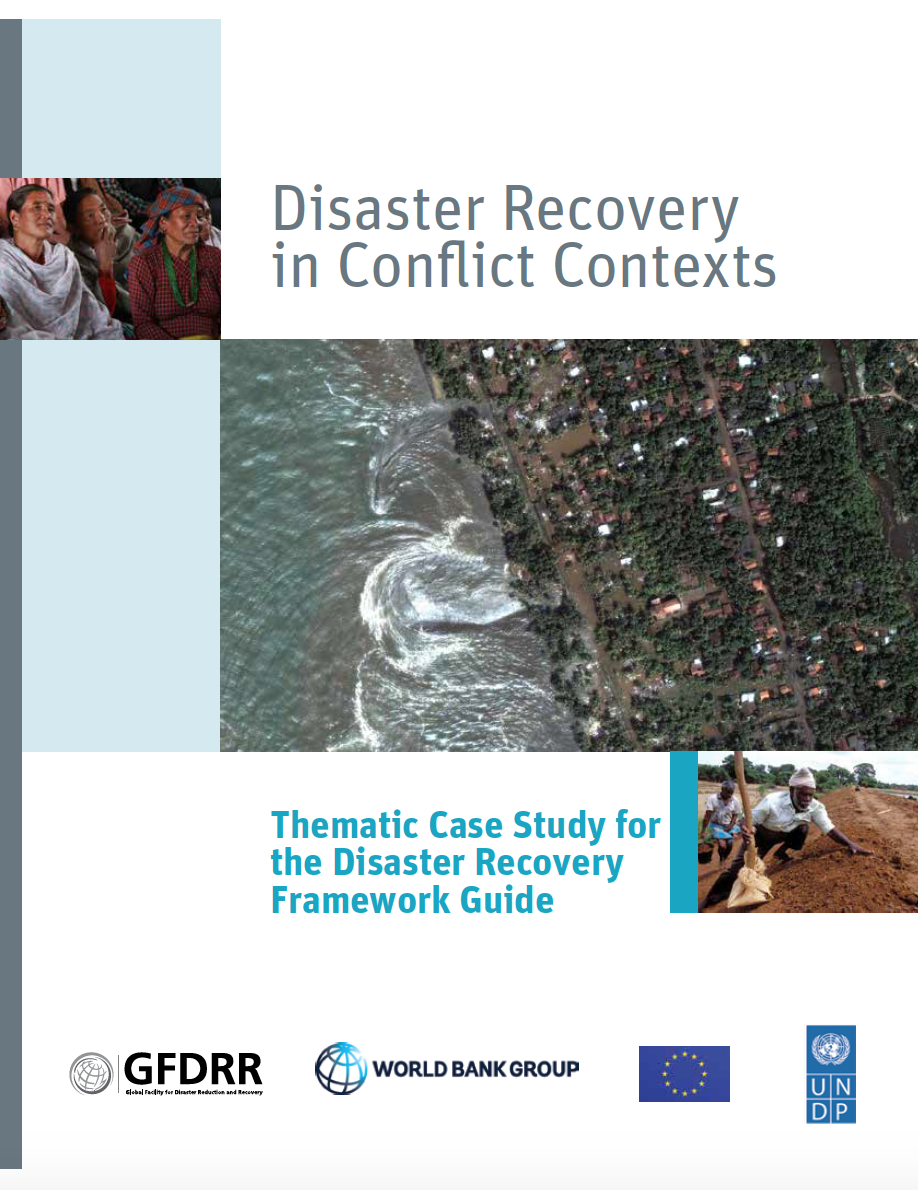In a conflict context, the guidelines for a recovery framework at its core remain centered on the holistic approach examining the four components advocated in the DRF Guide. These components are: (a) policy framework and vision for recovery; (b) institutional frameworks; (c) recovery financing; and (d) recovery implementation and monitoring. Where the conflict context differs is the emphasis on the utilization of the principles of impartiality, empowerment, gender, and ‘do no harm’ throughout the DRF to mitigate the risk of negative social impacts in the recovery effort. These principles are important in any natural disaster context as well, but become critical in implementing recovery for disasters within a conflict context where they must be followed to ensure equity across conflict and disaster victims.
Disaster Recovery in Conflict Contexts: Thematic Case Study for the Disaster Recovery Framework Guide
May 31, 2016

